Did Mopar Paint Dusters With Gray In The 70s
The late 1960s and early 1970s were a groundbreaking time for American culture, music, and of course cars. Many consider this to be the pinnacle of the muscle car era, a menstruum when vehicles were getting wilder than ever earlier, with ambitious styling, raucous V8 engines, and eye-catching color schemes. Mopar cars were at the forefront of this motion, and accept become famous for their High-Bear on colors that debuted between 1969 and 1971. Today, we'll be looking back at these High-Impact Mopar paint colors, as well as the meanings behind their creative names and the years they were available. The three-graphic symbol identifier for each color below volition be found on a vehicle'due south fender tag, indicating the colour that information technology was originally painted. Color codes beginning with an E were released in 1969, F were released in 1970, and 1000 were released in 1971, although many were bachelor for several years afterwards their release. In cases where colors were special-ordered, the fender tag may read 999. Annotation: Dodge and Plymouth had their ain names for each of these colors, but the paint code was the same beyond both brands. For example, you might hear someone incorrectly refer to the color of a Route Runner as Plum Crazy, but that name was merely used on Dodge models — Plymouths used the name In-Violet, fifty-fifty though information technology was technically the aforementioned color. The reference photos below are courtesy of Mecum Auctions. Available: Spring 1969 simply Ane of the first of the Loftier-Bear on Mopar paint colors, this vivid green hue was released in Bound of 1969. It was simply bachelor for a curt time, making it a rare observe. Dodge referred to this color as Brilliant Green. For Plymouth models, it was referred to as Rallye Green; some sources indicate Plymouth cars painted this color were coded 999 to indicate a special-club color lawmaking. Available: 1969-70 This vivid orange hue was available for two model years, and featured a pair of delicious-sounding names inspired by fruit. Contrivance models called it Go-Mango (a spin on the phrase "get homo, go!"), and Plymouth models called it Vitamin C. Available: 1969-71 Although it was the darker of two High-Bear upon xanthous colors offered on Mopar cars of this era, EL5 was no less vibrant. On Dodge models, information technology was called Butterscotch later the candy; on Plymouth models, it was a tropical Bahama Yellow. Bachelor: 1969-72 I of the longest-running High-Touch pigment colors, EV2 has a somewhat confusing pair of names. Dodge called it Hemi Orange, while Plymouth called it Tor Scarlet. The latter is a play on the word torrid, which means "parched with heat, especially of the sunday" or "giving off intense heat; scorching" — that sounds well-nigh right for this intense blood-red-orange color. Available: 1970-71 This iconic purple color was referred to as Plum Crazy on Dodge models, in reference to an old idiom meaning absolutely bonkers. Plymouth called it In-Violet, which may be a play on the word inviolate (meaning safe or unharmed) equally well every bit a reference to the flower of the aforementioned color. Bachelor: 1970 only This acidic-looking yellow-light-green color was matched by a pair of names that tied in citrus fruit. Dodge chosen it SubLime, which was also a reference to the word that means fantabulous and monumental. Plymouth called FJ5 Lime Lite as a nod to the "limelight" stage lighting that illuminated an role player or performer in front of a crowd. Available: 1970-71 FJ6 was more of a neutral greenish than the yellow-tinted FJ5 color to a higher place, simply it was all the same bright and middle-catching. Dodge called this color Green Become after the color of traffic lights. Plymouth called it Sassy Grass as an indication of the lively character of this hue. Bachelor: Spring 1970, special social club in 1971 Perhaps the about vibrant and controversial of the Mopar High-Impact paint lineup, FM3 is instantly recognizable, even among the other brilliant colors seen here. Dodge called it Panther Pink after the classic 1963 pic, The Pink Panther. Plymouth called the color Moulin Rouge, referring to the famous cabaret in Paris where the can-can dance was born. Available: 1970-73 Some other long-running High-Impact paint colour, this bright yellow hue looked like it belonged on a tree in the tropics. Contrivance called it Height Banana; Plymouth called it Lemon Twist after the effluvious drink garnish. Available: 1971 only This colour wasn't quite yellow, but wasn't quite green either. Dodge chosen it Citron Yella, a clear reference to the fragrant citronella oil derived from the lemongrass plant. Plymouth called it Curious Yellow — this appears to be a nod to the Curious George children'southward volume series, as well as a quip about the atypical yellowish hue. Now that you know more well-nigh High-Impact Mopar paint colors, you may be preparing your A, B, or East-body Mopar project automobile for a trip to the body shop. Archetype Industries can help you find all the sheetmetal trunk panels, trim, decal kits, and other accessories you need to complement your machine's fresh coat of paint. Click the push button below for a free total-colour Dodge and Plymouth restoration parts catalog. 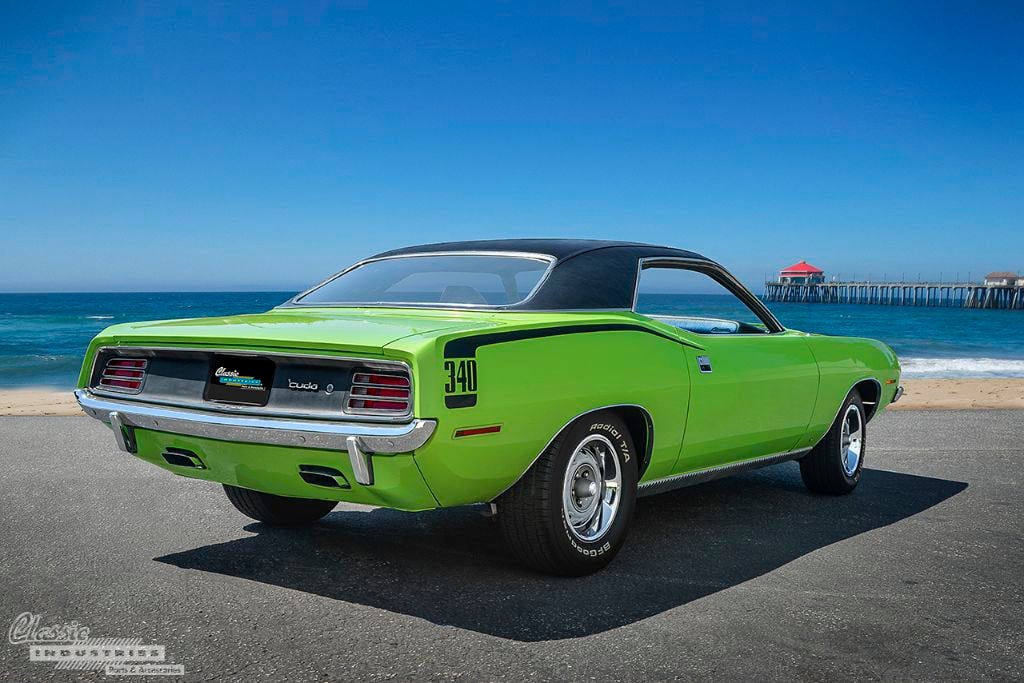
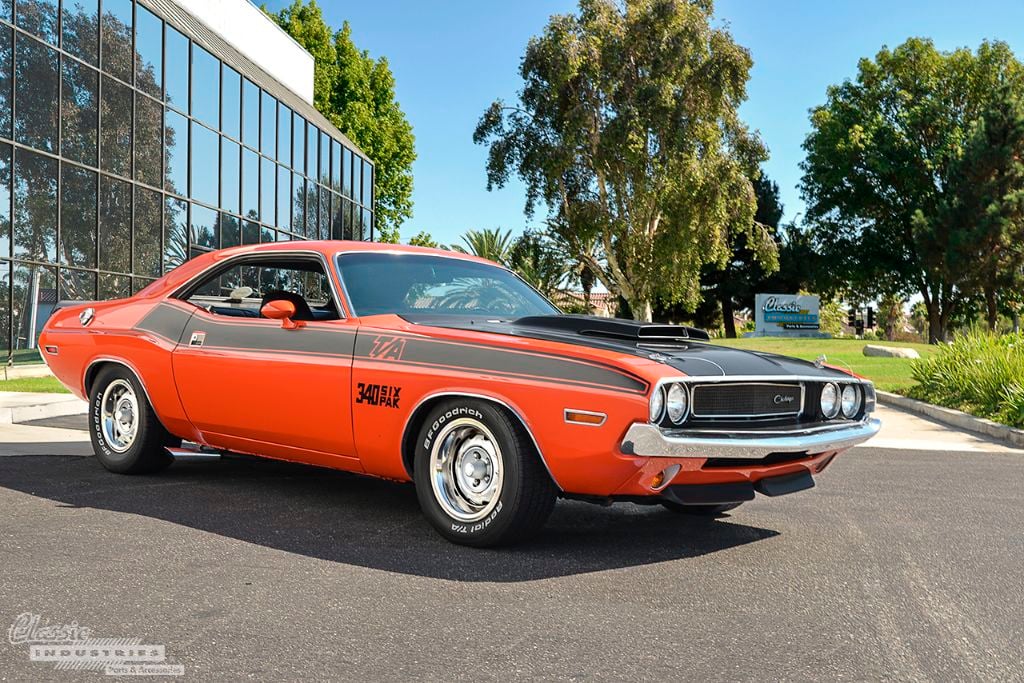
EF6 Mopar Pigment - Bright Green / Rallye Greenish
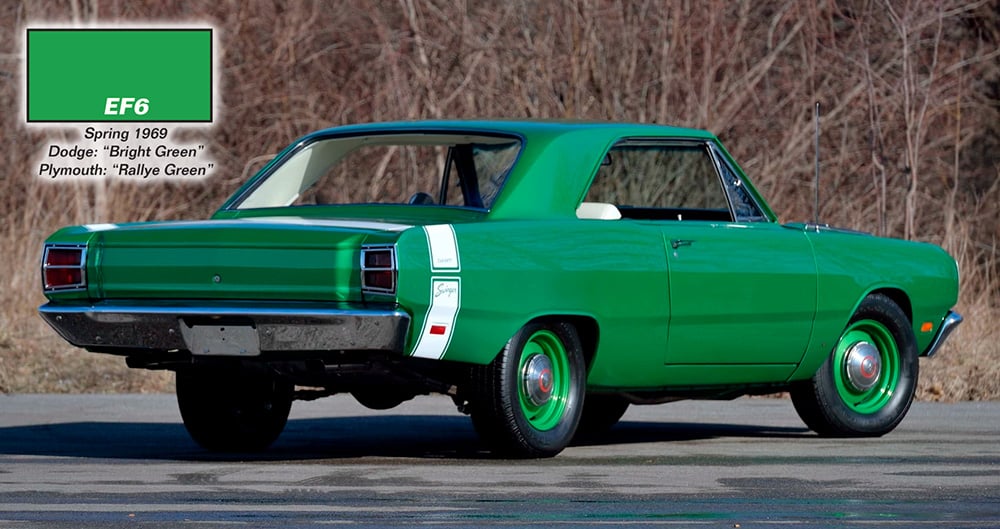
EK2 Mopar Pigment - Go-Mango / Vitamin C
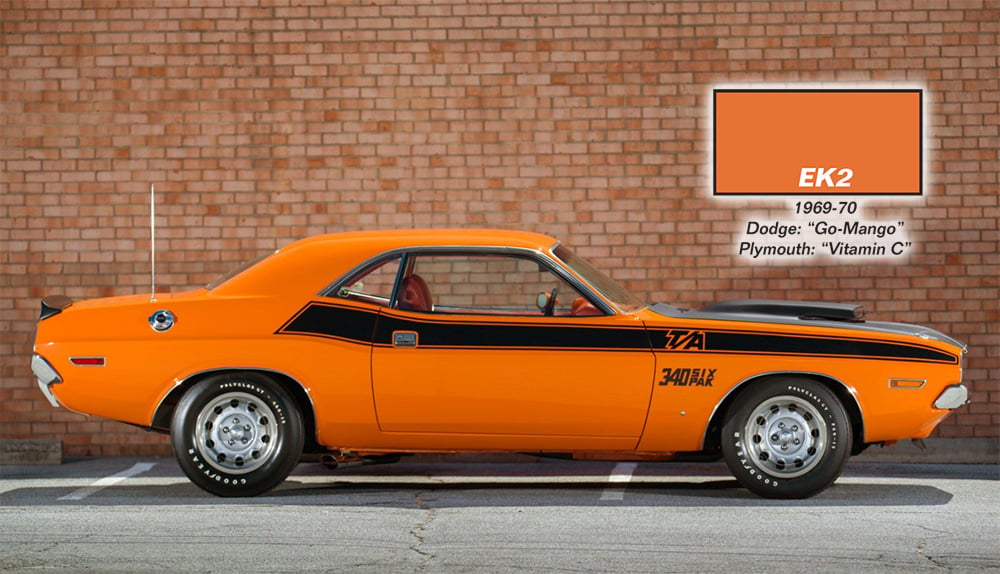
EL5 Mopar Pigment - Butterscotch / Bahama Yellow
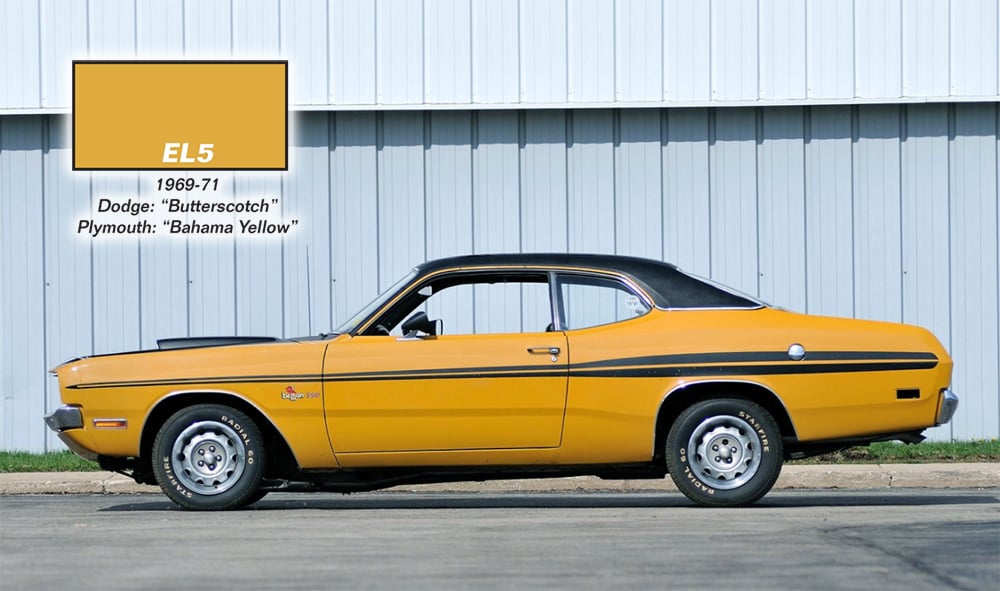
EV2 Mopar Paint - Hemi Orangish / Tor Scarlet
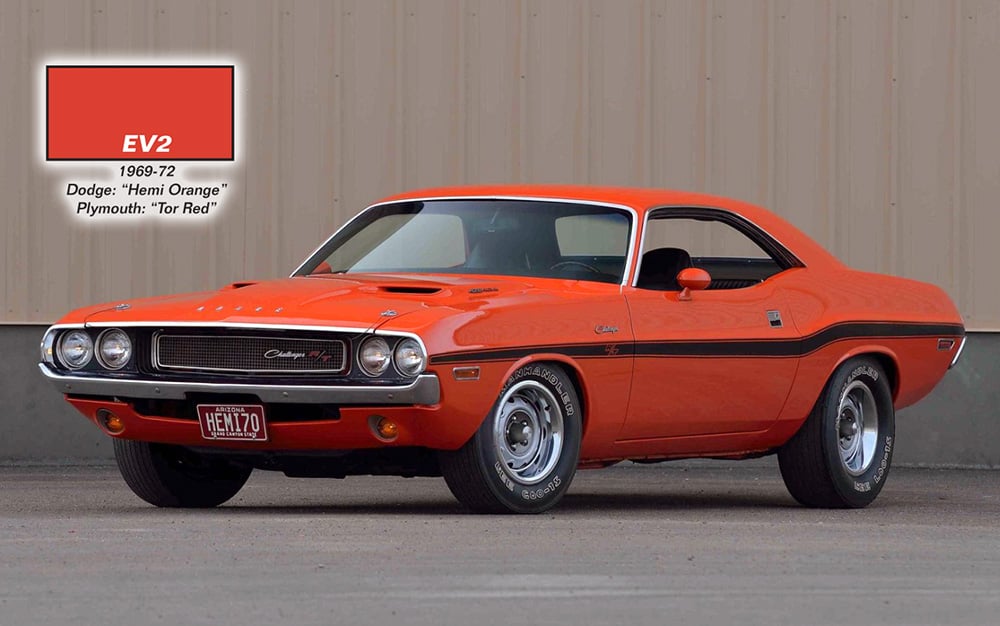
FC7 Mopar Paint - Plum Crazy / In-Violet
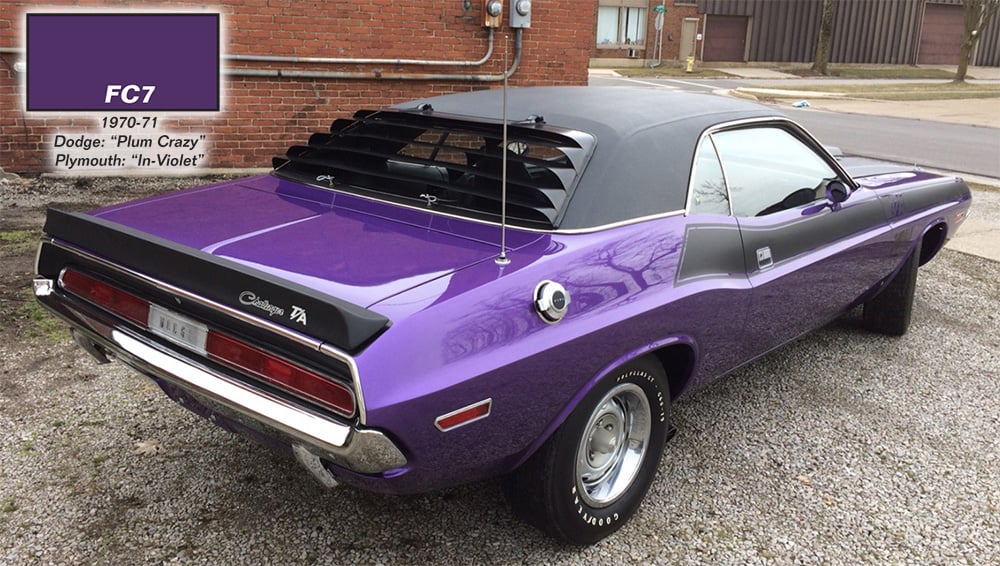
FJ5 Mopar Pigment - SubLime / Lime Calorie-free
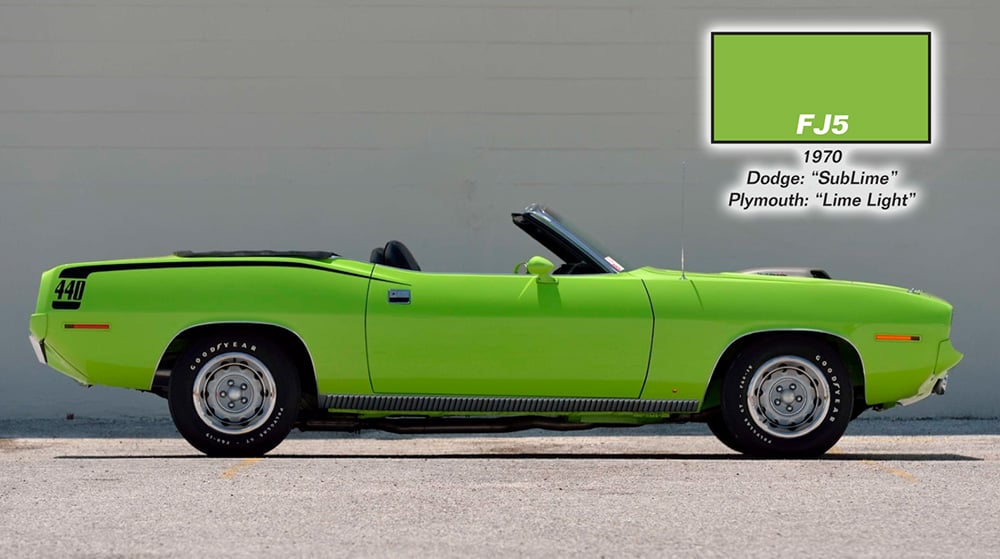
FJ6 Mopar Pigment - Green Get / Sassy Grass
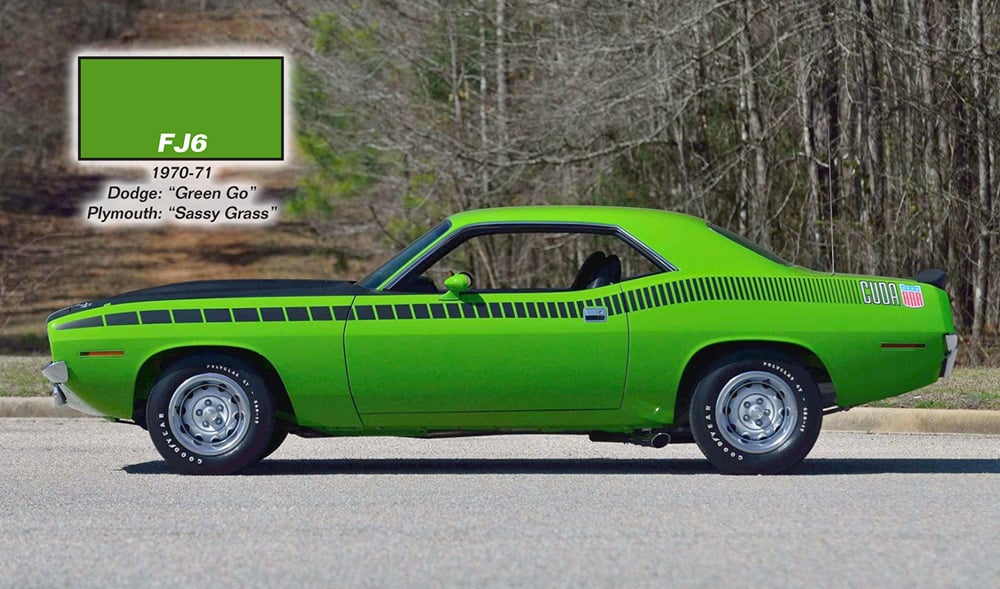
FM3 Mopar Paint - Panther Pink / Moulin Rouge
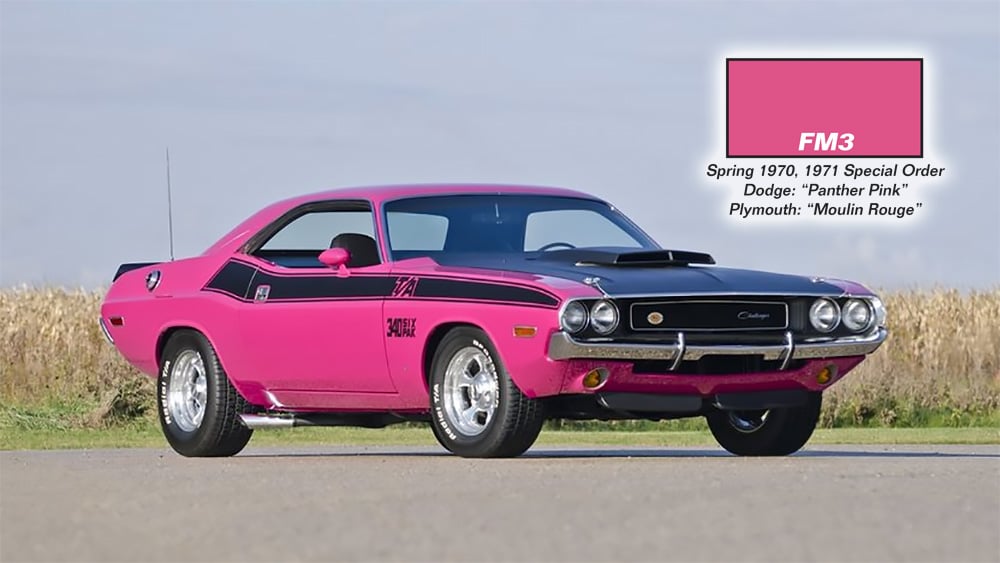
FY1 Mopar Paint - Top Banana / Lemon Twist
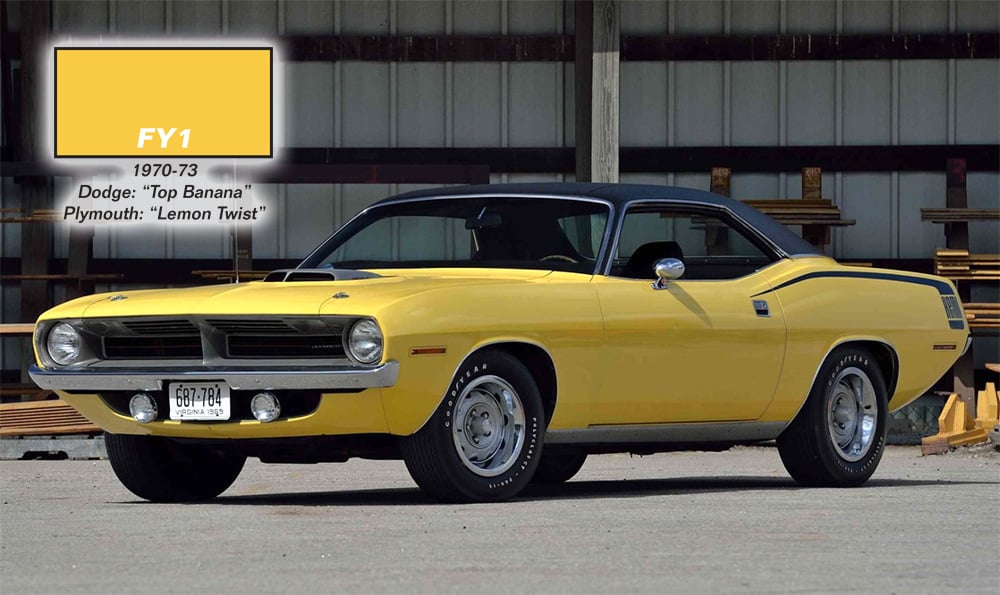
GY3 Mopar Paint - Citron Yella / Curious Xanthous
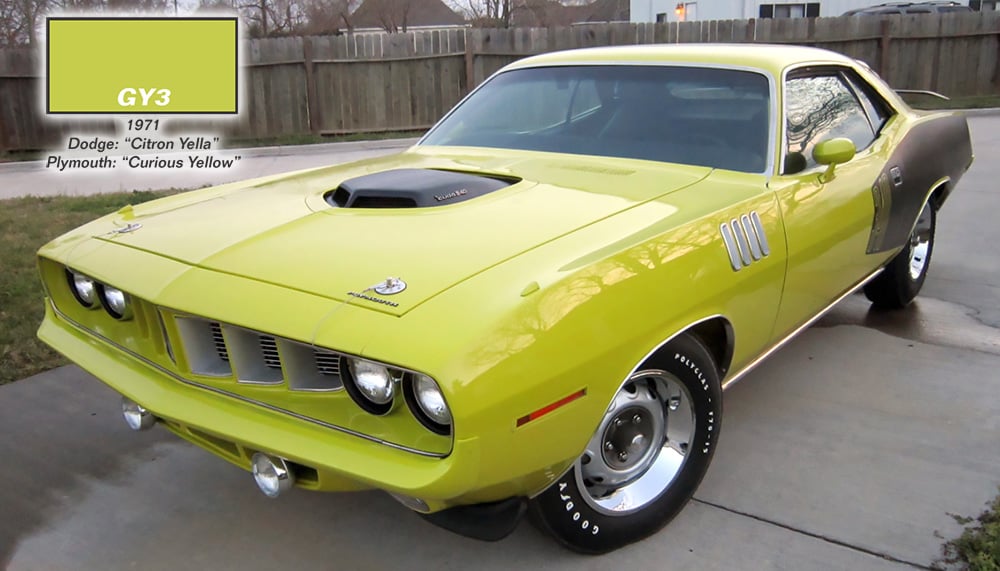
Demand Contrivance and Plymouth Restoration Parts?

Source: https://news.classicindustries.com/mopar-paint-high-impact-colors
Posted by: spinellaornat1947.blogspot.com


0 Response to "Did Mopar Paint Dusters With Gray In The 70s"
Post a Comment